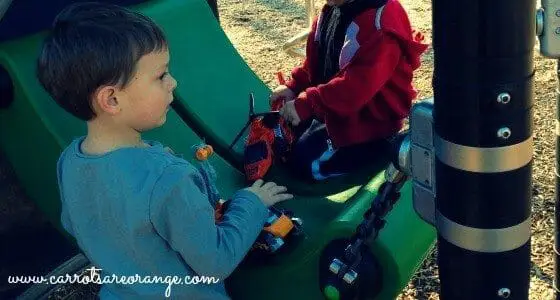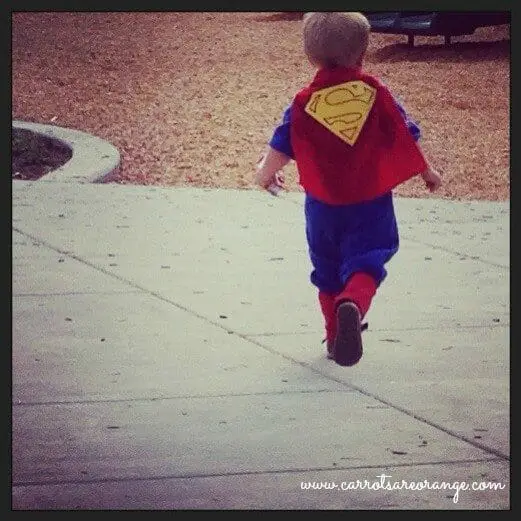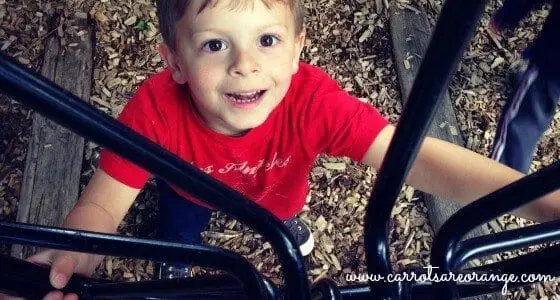I know. I am not alone. Maybe experiencing your child get crushed on the playground is some sort of initiation to the next level of parenting toughness, or maybe it is just a cruel way of reminding us parents that we made the decision to bring this child into the world…so we must allow him to experience it. All of it. Good and Bad. There are no shortcuts.

I am not going to go into the details of my most recent playground conundrum but let’s just say I wanted to cry like a baby, shrivel up and then run as fast as I possibly could to sweep up my child and let him know just how awesome he is. I didn’t do any of that though. I survived and I think my child is better off for it. Social and emotional intelligences must be developed, nurtured and massaged in our children’s brains. If we don’t allow them to feel, then how will they develop into socially and emotionally intelligent human beings?

How to survive watching your child get crushed on the playground:
Observe, Observe, Observe
As crushing as the scene is for you, don’t look away. Keep your eyes on the situation, on your child. Observation will guide you, it will help you in how to assist your child.
Stand Back
In other words, don’t intervene. Such a challenge. Sure you could make it better fairly quickly but I am not certain the social and emotional learning would be nearly as great. Actually I am sure of it.
Modeling is the Best Teacher
The best way I have found to “do something” is to model the behavior that you believe will be beneficial to the child. In this case, as the children neared me and noticed me, I smiled at them. I asked their names. I introduced myself. I introduced my son. (I had befriended the children’s parents so I was not a “stranger” approaching the children.)

Support the Child
The child will feel all those wonderfully rich emotions like sadness, disappointment, insecurity and confusion. That is good. Acknowledge those emotions. Accept those emotions. Let him know those emotions are okay. Use words. Hug.
Allow it to Happen
Let the experience happen in all its glory. Let it play out. In this case, the children were not intentionally trying to hurt his feelings or leave him out. They were just being bigger kids on the playground, running around. He couldn’t keep up. If these children were exhibiting verbally or physically aggressive behavior, I would not allow the experience to play out fully (like broken bones and blood fully). I don draw the line somewhere.
Follow Up
This point is probably the most powerful. As with disciplining my child or dealing with my own poor behavior, I revisit the situation. I make sure to follow up with my child to discuss with him, or in some cases to apologize for my behavior and explain myself to him. In this case, I waited for the moment when he brought it up (but in many cases I just wait for the “right moment” when we’re calm and being thoughtful). I described the situation, what I observed and asked him how he felt. He was able to place words on his emotions but if he wasn’t I would ask him: “How did your body feel? Were you feeling sad? left out? How would other children feel if you ran away from them and they were trying to speak to you?” You get my point.
I hope you found these points helpful. What would you add? I have written several posts on Mindful Parenting if you want more.
Warmly,
Marnie
